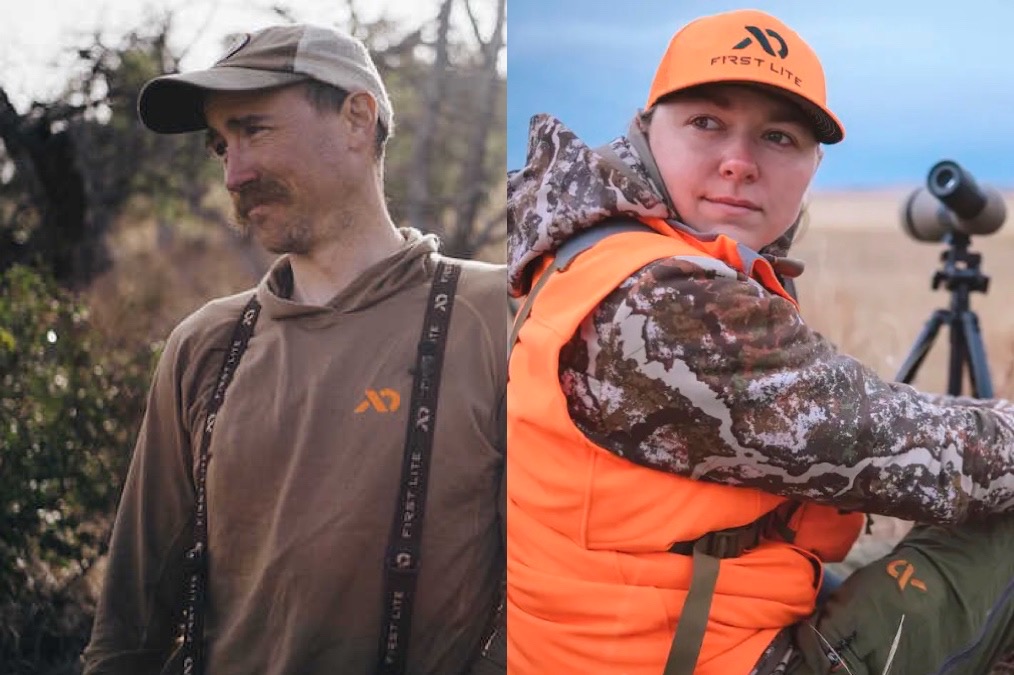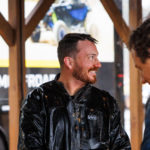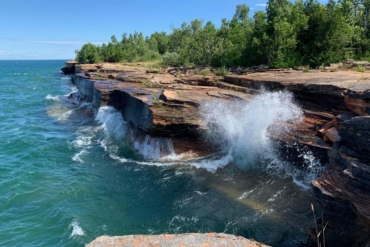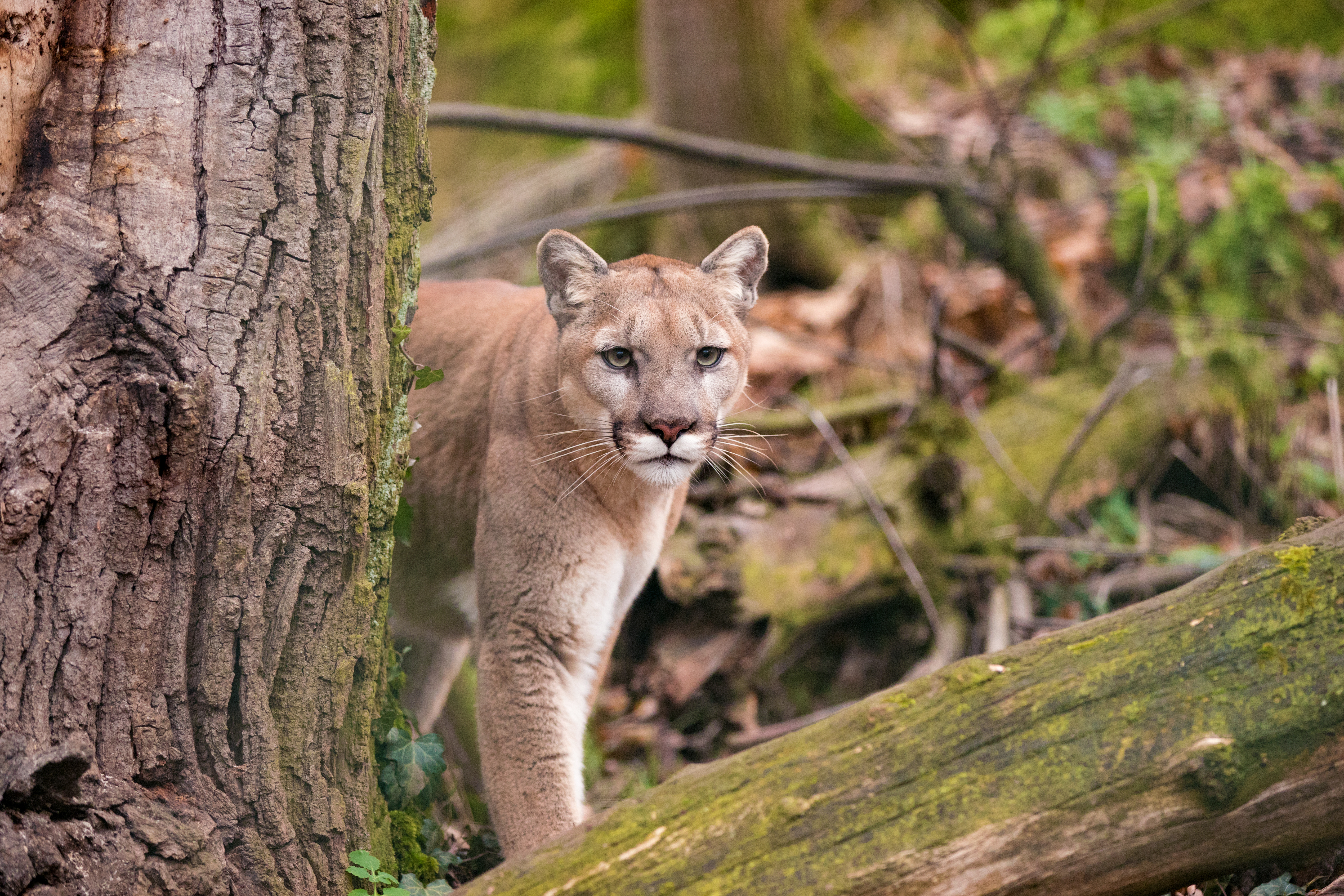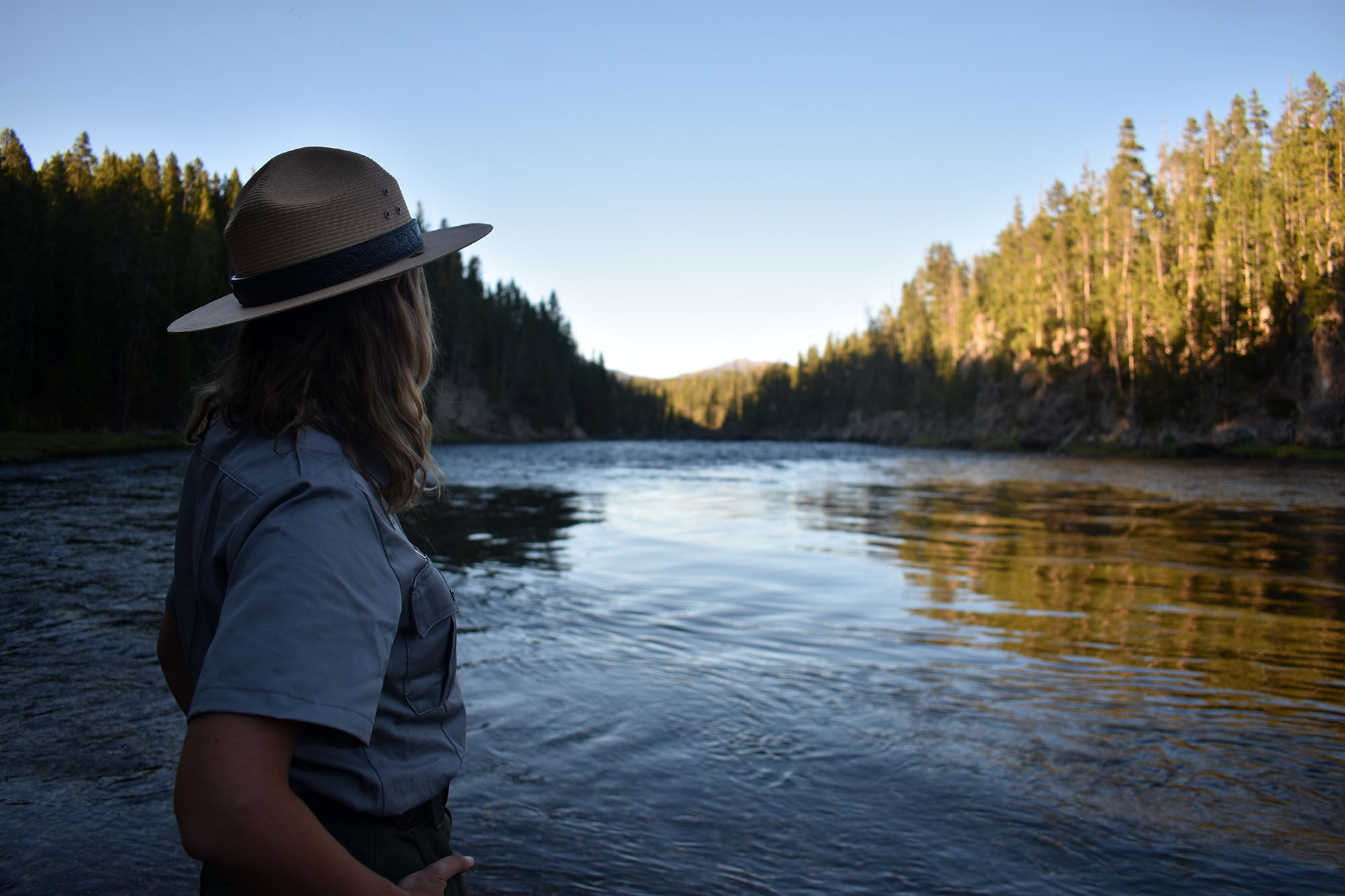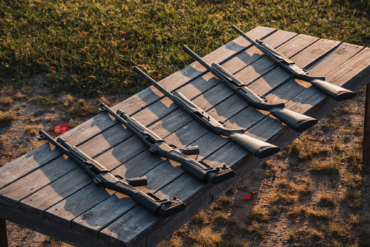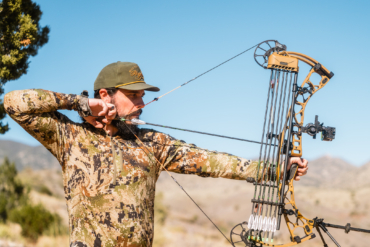If there’s something you want to know about hunting, MeatEater probably has the answer. The brand created by Steven Rinella began as a Netflix series and quickly grew into a hunting content juggernaut that encompasses videos, articles, podcasts, recipes, gear reviews, and conservation initiatives. Two of the people responsible for the MeatEater magic are Ryan Callaghan and Jordan Budd.
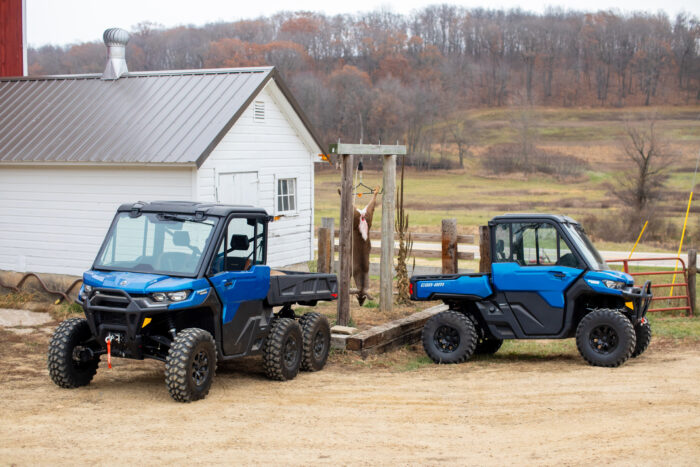
This year, I got to join these two for a whitetail hunt with Can-Am at Doug Duren’s farm in southern Wisconsin. In addition to driving the 2024 Defender (including a wild six-wheel-drive variant), and watching elite hunters do what they do best, I got to pick their brains about gear, the modern era of hunting culture, and steps we can all take to advance conservation goals in our own backyards.
Ryan Callaghan
Ryan Callaghan got his start hunting in the western U.S., where he became a guide and racked up more backcountry adventures than most of us can dream about. These days, he’s still hunting year-round and working as the director of conservation for MeatEater. You can stay on top of Cal’s exploits and conservation news every week with the Cal’s Week in Review podcast.
Some of Cal’s favorite gear include the First Lite Wick hoody and the Vortex Viper HS 4-16×44 scope that I used when we hunted together.
Jordan Budd
In addition to being part of the MeatEater crew, Jordan Budd founded Running Water Hunting, a guiding and outfitting business in the Nebraska Sandhills. If you want to chase whitetail, mule deer, elk, or turkey, that’s the place to go and she’s the one to call.
While we were talking in a ground blind, she recommended some awesome image-stabilizing binoculars from SIG Sauer and a hand warmer from FHF Gear. If you want to get really into the weeds on hunting and backcountry gear, check out her podcast, Jordan’s Tool Kit Radio to learn everything there is to know about the gear she tries and trusts.
Q&A With Ryan Callaghan and Jordan Budd
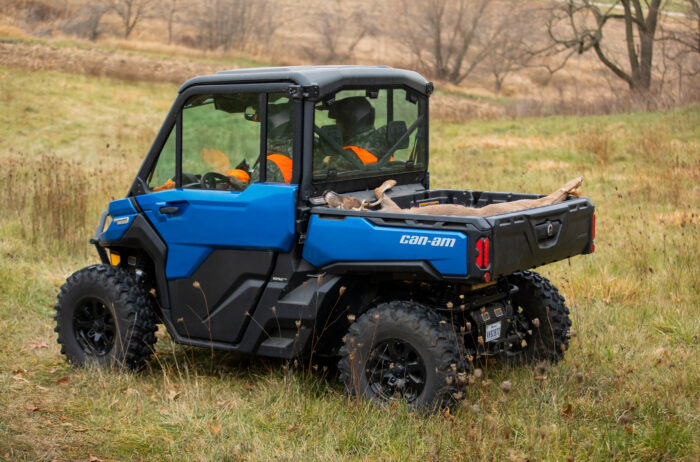
Digging deep into the nuances of hunting and the culture surrounding it with Callaghan and Budd will change a person’s outlook. They’re celebrities in the hunting world, but you won’t hear them shill for brands or brag about heroic exploits. It turns out that being a great hunter has less to do with showing off trophy animals, and more to do with building relationships and getting active in policy discussions.
How has the culture of hunting changed during your lifetime?
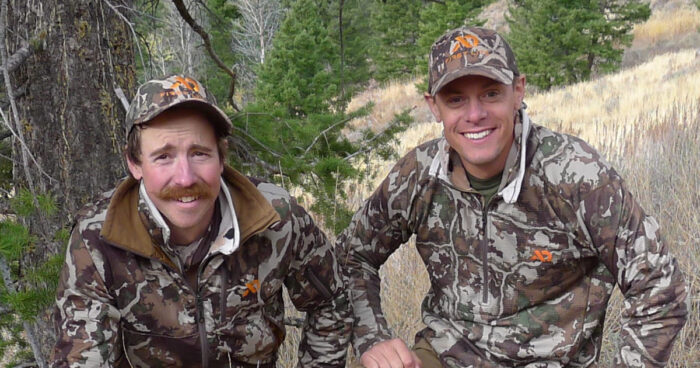
RC: I don’t honestly know that the culture of hunting has changed at all during my lifetime, but the connectivity of hunters has changed a ton in my lifetime. I think there are a lot of common themes that have been around forever that are just way more front and center. That’s changed a ton.
JB: I feel like the big hunting camps and family stuff is leaving a little bit. We get more and more people that come in that are just, they’re hunting by themselves or just with one or two buddies and they want to come in trophy hunting and get out. That type of deal.
RC: I’ll tell you one cultural aspect that changed a lot is — and certainly this started before media was even a thing — just, like, the food aspect has changed a lot. There are way more in-depth conversations going on about food preparation, cuts, and things like that for wild game than anything I was exposed to. Recipes, things to do, things to try. And I guarantee that was going on and it just was not something I was exposed to. It was like, cart things off to the processor as fast as you can, it gets converted into packages that sit in your freezer for way too long, and, you know, that was pretty much it.
JB: Yeah, and it would all get ground. Just grind the whole deer. People would just be like, “Roasts? You don’t want to eat those roasts.”
RC: “They’re all so dry.” It’s like they came dry, right? And you’re like, “Huh? I know that’s not a thing.”
Do you think hunting has gotten more or less accessible for newcomers?
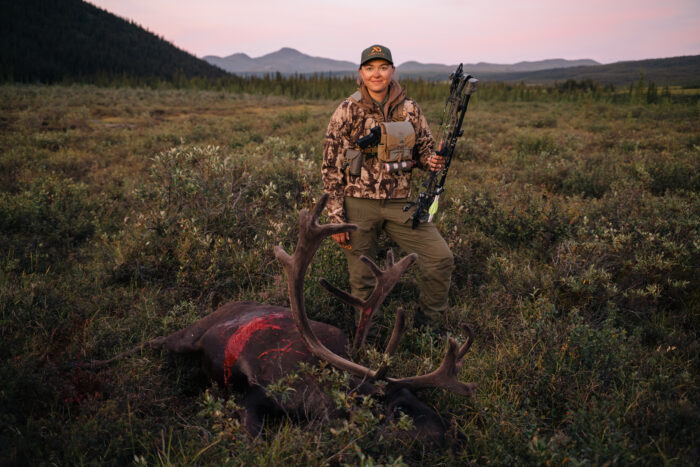
JB: The information is easier to find about how to do it, but the people that are willing to take you are harder to find. I feel like people aren’t as open to it maybe as they used to be. There’s a lot of articles and information out there that you can read about how to do it, but it takes the right kind of person to be able to read it and have the confidence to go apply it.
RC: The saddest thing that I run into is people who are like, “Yeah, I can’t wait to do this. I’m just saving up to buy this first.” It’s like, “Woah, go try it first and then start worrying about buying the stuff.” The walk, don’t run that I feel like most everybody I know went through is not talked about. Grandma worked at the church thrift store; that’s where all my hunting clothes came from.
I won a pair of Vortex Diamondback binoculars in an archery shoot one time. I came in third. The person who came in fourth was like, “Hey, you probably got a bunch of great stuff, all right. You want to trade me or sell me something for those binoculars?” I dug out my binoculars from the truck and the guy’s like, “You just take them.” I’d had the same pair of Nikon 10x50s for way too long and they looked like dust magnets, not something you could see through. Making do with what you have and learning how to be effective with it is something that we skip a lot, I think.
JB: Experience is key. Definitely. I feel like you see any of us wearing a certain piece of gear, or using it, or whatever, it’s easy to be like, “That’s something that I can control. I can buy that.” But you can’t buy experience. I think it’s an intimidation thing, too, like people are intimidated to go do it so they’re like, “I’ll do it when I can buy this thing because it’ll fix it for me or it’ll help me.”
RC: I think hunting and fishing are both extremely accessible. It’s the expectations that get way out of whack.… Time in the woods is the thing that you have got to prioritize. And it’s all those little 15-, 20-minute after-work or before-work increments that add up to experience. That’s what’s going to make you more effective.
JB: Yeah and I think, like, gear-wise, if you don’t have a lot to start with it’s like you don’t need a super-expensive rifle, but you need to shoot it a lot. Whatever you get, make sure it shoots well, shoot it a lot, and what gear you do have make sure you know how to use it.
What do you think is the biggest obstacle or problem facing hunters today?
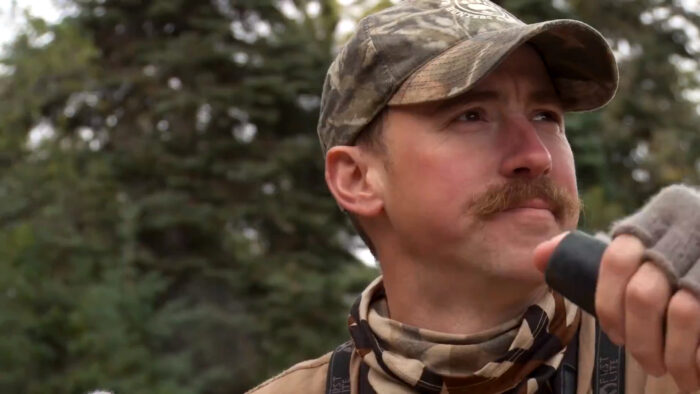
JB: I guess the expectation thing. For a lot of people getting into it, they’re looking to the internet for information and they’re seeing a lot of articles or a lot of videos that might be a 7-day hunt but it’s mashed into 12 minutes or 15 minutes for YouTube, or TV, or whatever.… There’s a huge misconception that it’s gonna happen in the first 15 minutes, and when you don’t see something for a couple of days your expectations get crushed. Some folks really let it get to them and they want to quit, or hunting sucks, or it’s somebody else’s fault.
RC: Yeah, our big backpacking trip, that’s like 10 days. We lost a day to weather on the front end — couldn’t even fly in — so that’s 9 days. Then lost 3 more days to weather over the course of the hunt. Then it takes 3 days to pack shit out of there. We killed two out of three bucks. On the outfitting slip, they’d be like, “Oh yeah, that’s a 70% success rate,” right? And on a YouTube video, it’d be like, “Two out of three, that’s great!” But that’s a big-time commitment and just a lot, a lot of effort. The time is what people just do not factor in.
Jordan, I’ve heard you say that you sell the experience, not the deer. Do clients come in understanding that, or do some of them have to be taught that?
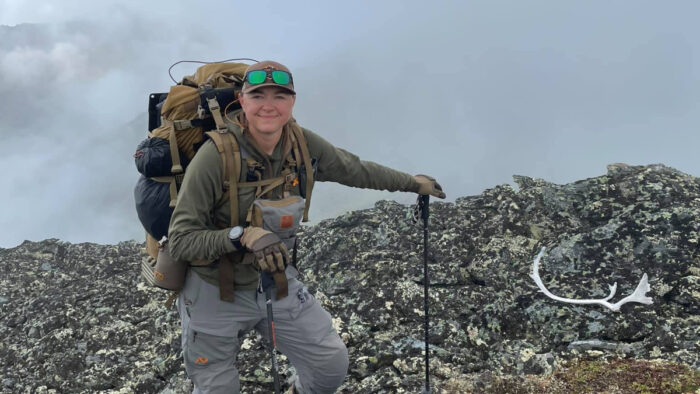
JB: It’s interesting. It feels like folks that have been on a lot of hunting trips and hunted a lot are a lot more receptive to that. Just kind of like, “Hey, it’s hunting, it’s just kind of the way it is.” You’re booking a trip a year in advance, you don’t know — you’re just picking dates. You don’t know what the weather’s gonna be like.
There are all kinds of things that can kind of derail a trip in a way, that’ll make deer not move, but the folks that maybe don’t hunt as much and they’ve been looking forward to this trip — which I don’t blame them at all — for a year, seems like they’ll work it up way more and just kind of, almost like disappoint themselves, sort of, because they worked it up so much.
RC: I think there are some household expectations that I see a lot, too. It’s like, busy families. “Oh, if you’re gonna go do this you better be coming back with something.” Some folks have a hard time with their significant other if the thing that they’re coming back with is a great experience. It’s like, “That’s some very selfish time you took.”
JB: I hunted the most amount of days this year for Idaho deer that I ever have, and I truly didn’t care if I filled a tag, and it was so much more enjoyable. It was so much more fun.
Do you think that social media is overall a good thing, or a bad thing, or is it a decision people have to make?
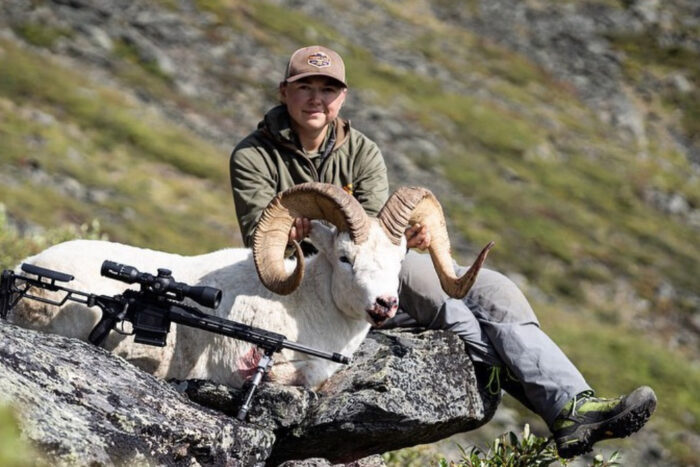
JB: There are some good things about it as far as connecting people that otherwise wouldn’t have been connected, but I think it’s a source of a lot of misconceptions that make people approach it in the wrong way and it ends up not being the experience it should have been just because, yep, false expectations again coming into play.
RC: Where I think we fail is — and this has been a talk for a really long time — where we get this aspirational, inspirational type of marketing way out of whack. You’ve seen it here, how happy people are to have the opportunity to come out here, and how happy they are to have the opportunity to get a deer, and then it’s a doe, they’re super ecstatic, and that’s just not something that the community overly celebrates at all, right? And you see all these addendums like, “Oh, I got this doe because it’s in the management plan. I’m not just happy to get the doe because I’m helping out with management.” That’s the qualifier for things.
How can people be good stewards of the environment, wildlife, and the culture of hunting?
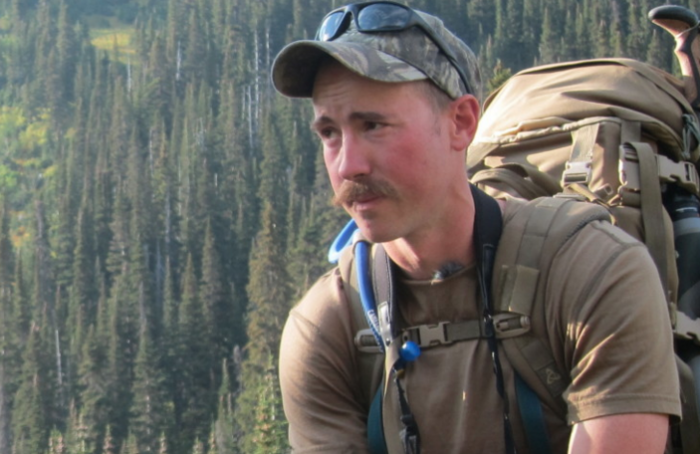
RC: For hunters, we’re a major vector for invasive species — primarily noxious weeds, stuff like that — that do have very costly, expense-wise, long-term effects on forage that all of these animals depend on. Being up to snuff on some of that is great. Duck hunters who like to brush in their blinds and then carry that with them through multiple states, that’s a bad idea. I know it’s a pain in the ass to collect brush and brush things in, but do it for that hunt, get rid of all that stuff in the same spot, and then do it again the next time because you’re carting some nasty shit around, I promise you, that will have real effects of the ecosystem that you hunt.
Set a goal of participating in the state regulation process somehow, some way. Show up to a state game commission meeting, testify on something, write an op-ed. You know, those things matter.
JB: Leave the place better than you found it. Even just cleaning up after yourself because people going by that might be neutral on hunting, and they go by a place that they think a bunch of hunters are camped, and it’s trashed — it’s already going to put a super bad taste in their mouth. You get onto a piece of private [property] or something, definitely respecting the landowner and what they’ve got going on, and shutting gates, and all of that will probably let that landowner keep letting you on or giving an opportunity to somebody else to go on. If you just kind of get permission and you go running around like it’s yours, and leaving gates and stuff open, he’s gonna shut it off to everybody.
RC: Ask if you can help. Take the time to have a second or third cup of coffee even if it means you’re missing the best light. That relationship ultimately matters more — and it’s their time, too.
You gotta have the guts to pick up after other people, too. We came across a dirty camp in this absolutely magnificent spot way in the middle of the wilderness and legitimately, there would have been the biggest altercation you had ever seen out of me. It defies my brain to see somebody litter in the middle of a wilderness area. And this was hunter-specific trash: Chad Mendes Peak Refuel containers, bloody latex gloves, things like that. It crushes me that a hunter who identifies as a hunter would leave something like that out there. Yeah, bad news. So we packed out all their trash that we could find.
The best-case scenario is that a hunter finds hunters’ trash to pack out. Bloody Busch Lite cans on the side of the road? My mom cleans the barrow pits along her place all the time and she cusses a lot about hunters. I’m like, “Mom, what you’re talking about are pigs, not hunters.”
JB: But the problem is when the next bill comes up about hunters, that’s what she thinks of — bloody Busch Lite cans. Like, “Nope, vote it out.”
RC: One great example of hunter advocacy: we started a land access initiative where we try and fund more public land — specifically, more access to hunting and fishing. Working with Pheasants Forever and Montana Fish, Wildlife & Parks, we were exposed to this super-awesome chunk of ground on the Yellowstone River in Montana. We fund-raised and funded a good chunk of it right at the end, and then advocated at the state land board and I spoke with the governor on this myself, and it’s going to be a new state wildlife management area. This is under an administration that said, “No more public land.”
Hunters have spoken; we really want this. Got organized, got focused, and that chunk of public land is not just open to hunters, but it’s a phenomenal birdwatching place, there’s 2-plus miles of river frontage on the Yellowstone, there’s a boat launch, amazing upland birds, waterfowl, big game — it’s an awesome place and it’s open to the public year-round.
I think that’s something that really gets overlooked from the non-hunting public is there’s so much that we do on behalf of hunting and wildlife that benefits all these other species year-round and we’re only using it a small chunk of the year.
